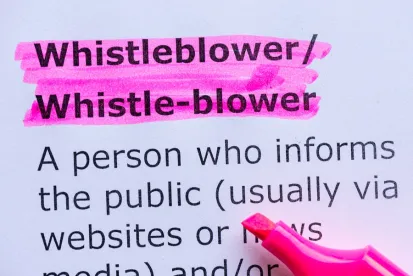Yes, under the SEC’s whistleblower reward program, a disclosure to the SEC about a books and records violation that leads to a successful enforcement action recovering more than $1 million in monetary sanctions is eligible for an award ranging from 10% to 30% of the collected proceeds. Click here to learn more about how the SEC determines the amount of a whistleblower award.
Two recent enforcement action against Citigroup illustrate the type of books and records and internal control violation that can result in substantial penalties.
SEC Books and Records Requirements
Section 13(b)(2)(A) of the Exchange Act requires public companies to make and keep books, records, and accounts, which, in reasonable detail, accurately and fairly reflect the transactions and dispositions of the assets of the issuer.
August 2018 Enforcement Action for Books and Records Violations
In August 2018, Citigroup paid a $5.75 million penalty to settle an SEC enforcement action concerning a books and records violation. According to the order, Citigroup Inc. and its U.S. broker-dealer subsidiary Citigroup Global Markets Inc. (CGMI) incurred $81 million in losses due to trader mismarking and unauthorized proprietary trading.
During a three year period, three CGMI traders mismarked opaque, illiquid positions in certain proprietary accounts they managed. The positions were not effectively price verified by Citi’s valuation control group. In two instances, the traders covered losses from widespread unauthorized trading. The discovery of each mismarking required Citibank to recognize millions of dollars of previously-unreported losses or the reversal of improperly reported unrealized gains in its books and records. CGMI fired the traders and recognized a total of $81 million in losses.
SEC Internal Controls Requirements
Section 13(b)(2)(B) of the Exchange Act requires all reporting companies to devise and maintain a system of internal accounting controls sufficient to provide reasonable assurances that, among other things, transactions are executed in accordance with management’s general or specific authorization; transactions are recorded as necessary to permit preparation of financial statements in conformity with generally accepted accounting principles or any other criteria applicable to such statements, and to maintain accountability for assets; access to assets is permitted only in accordance with management’s general or specific authorization; and the recorded accountability for assets is compared with the existing assets at reasonable intervals and appropriate action is taken with respect to any differences.
August 2018 Enforcement Action for Internal Controls Violations
In August 2018, Citigroup paid a $4.75 million penalty to settle charges that it failed to devise and maintain adequate internal accounting controls. According to the order, Citigroup subsidiary Grupo Financiero Banamex S.A. de C.V. loaned approximately $3.3 billion to Oceanografia, S.A. (OSA) between 2008 and 2014 based on invoices and work estimates for services that OSA provided to Pemex, the Mexican state-owned oil company. Some of the OSA work estimates were fraudulent and did not reflect amounts Pemex actually owed to OSA.
Due to its failure to maintain internal controls sufficient to provide reasonable assurances that Banamex’s transactions were recorded as necessary to permit the preparation of Citigroup’s financial statements in accordance with generally accepted accounting principles (“GAAP”) and to maintain accountability for assets, Citigroup lost approximately $475 million. When Citigroup learned of the fraud, it adjusted its fourth quarter and full year 2013 financial results downward by the then-estimated $360 million loss and recognized an additional loss of $113 million in 2014.
The SEC’s order identified the following internal control deficiencies:
- Banamex had deficient internal accounting controls over its accounts receivable factoring program used by OSA, including inadequate controls necessary to test the authenticity of the factored documents prior to advancing funds to OSA and recording them as accounts receivable.
- Banamex lacked internal accounting controls sufficient to identify and respond to red flags that arose during the relationship between Banamex and OSA potentially warning Banamex of the ongoing fraud.
- Banamex lacked an adequate ability to independently monitor and keep track of which accounts receivable factoring advances had been paid and which remained outstanding.
-
Guide to SEC Whistleblower Program
To learn more about the SEC Whistleblower Program, download Zuckerman Law’s eBook: SEC Whistleblower Program: Tips from SEC Whistleblower Attorneys to Maximize an SEC Whistleblower Award.




 />i
/>i

